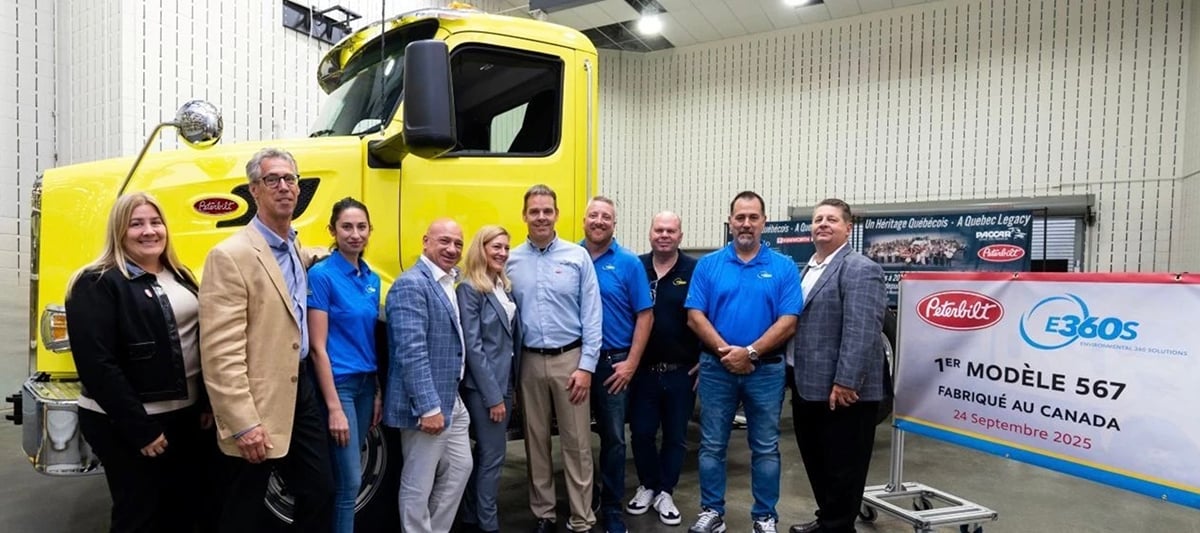An Alberta farmer is frustrated no one will take responsibility for his
field becoming contaminated with Roundup tolerant canola when he seeded
a non-Roundup tolerant variety.
Walter Zulyniak said neither Agricore United, the company he bought the
seed from and seeded the crop for him, nor Dow AgroSciences, which
developed the Nexera 705 canola, will accept responsibility for having
Roundup tolerant plants appear in his field where none had been grown
before.
“Do we just stand by and let them contaminate your land and walk away.
Read Also

Equipment manufacturing may return to Canada
Some ag equipment and automotive manufacturers are now adjusting their production and distribution to avoid tariff costs in relation to supplying the Canadian market.
There’s got to be some justice,” said Zulyniak of Camrose.
He said he was shocked when hundreds of canola plants in his 115 acre
field didn’t die when it was sprayed with Roundup on June 25. He
estimates from 10 to 30 percent of the crop that germinated had the
Roundup tolerant traits.
Because of the drought, a decision was made to spray the crop with
Roundup to kill it. The crop was sprayed but many plants continued to
thrive.
Zulyniak said he has made a conscious decision not to grow Roundup
resistant varieties of canola on his farm and now he must spend
hundreds of dollars to get rid of the Roundup resistant plants he
avoided.
“I’m not knocking Roundup, but I bought contaminated seed,” said
Zulyniak.
“They know what’s in there yet they’re still selling it to farmers,” he
said.
In an Aug. 2 letter to Zulyniak after a meeting with Dow and AU
officials at the farm, AU’s Derrick Mizera of Camrose wrote: “As stated
in the meeting, there is no real one to blame or hold responsible, all
practiced and regulatory protocols were follow(ed) by Dow AgroSciences
and Agricore United and yourself.”
Zulyniak rejected AU’s offer to pay for one application of Reglone 240
to kill the volunteers that weren’t killed by the Roundup.
In exchange for spraying the field Zulyniak was asked to sign a form
releasing the companies of responsibility and Zulyniak was asked not to
talk about the field.
“No way was I going to accept the offer and keep my mouth shut for
$400,” the amount Zulyniak estimated to be the cost of one Reglone
application.
Lyle Friesen, research associate in the Department of plant science at
the University of Manitoba, said the problem of seed contamination
isn’t unique to Zulyniak.
After farmers started complaining about Roundup resistant canola
volunteers unexpectedly showing up in their fields, Friesen tested 33
seed lots of pedigreed seed for herbicide resistance this spring.
Of the 33 seed lots sampled, only one seed lot had no detectable
contamination. Out of 33 seed lots, 27 had unique tag numbers, meaning
they were drawn from different sources.
“There’s a problem,” said Friesen.
“If you’re like this farmer, you’re not expecting to have this
resistance trait and you spray it with Roundup and you end up with this
mess,” said Friesen, who conducted the research to see how widespread
the cross pollination of herbicide and non-herbicide resistant canola
has become since herbicide tolerant canola was introduced in 1995.
“We wanted to see what’s happening and publicized that farmers will get
more than what they bargained for in these conventional seed lots.”
Fourteen of the seed lots had contamination in excess of 0.25 percent
and therefore failed the 99.75 percent varietal purity guideline for
certified seed. A 0.25 percent contamination would be one wrong seed in
400.
Certified seed must meet certain seed production standards, but there
are no genetic purity standards.
The samples of Nexera 705 seed, the same kind that Zulyniak grew, had
the highest amount of seed contamination in the study, said Friesen.
The two Nexera lots ranged from three to five percent contamination,
equivalent to 12 to 20 wrong seeds per 400. That translates into about
two to four wrong seeds per sq. metre in the field, said Friesen.
Dave Dzisiak, marketing director for Dow AgroSciences Canada, said when
farmers sign an agreement to grow Nexera canola, Dow guarantees the
canola will produce a high profile oil, not that it is free of
herbicide tolerant traits.
“We are very confident when a grower buys our seed that the seed can do
what the grower bought it for, to produce the crop, and get a premium
for it,” said Dzisiak of Calgary.
“What we have to do is ensure, to guarantee, what our canola will do,”
he said.
Nexera canola varieties produce oil with high oleic and low linolenic
levels, giving it a more stable shelf life without hydrogenation.
Growers are often paid a $2 per bushel premium for growing the crop
under contract.
Dzisiak said seed is checked for stray herbicide tolerant traits at the
breeder and foundation stage of the seed multiplication. Any sign of
herbicide tolerance at that stage is removed, but it is virtually
impossible to guarantee the crop doesn’t have herbicide tolerant traits
once it reaches the certified stage.
“If you wanted to guarantee the seed didn’t have something in it you’d
have to test every seed.”
Brian Harrison, production and sales manager with Proven Seeds, said
Zulyniak’s field is an isolated case.
“I don’t think it’s a problem at all,” said Harrison of Winnipeg.
Most farmers across Western Canada have grown some kind of herbicide
tolerant canola and will have herbicide tolerant volunteers appearing
in their field.
Zulyniak said he plans to launch a lawsuit against Agricore United,
which he had the contract with, for selling seed that was contaminated.














